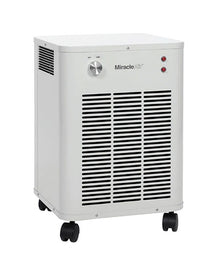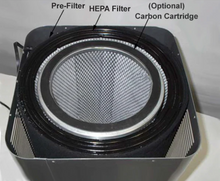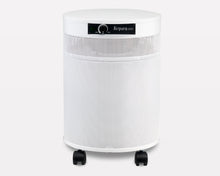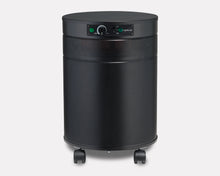Top 5 Signs Your Current Air Purifier Isn't Enough for Severe Allergies
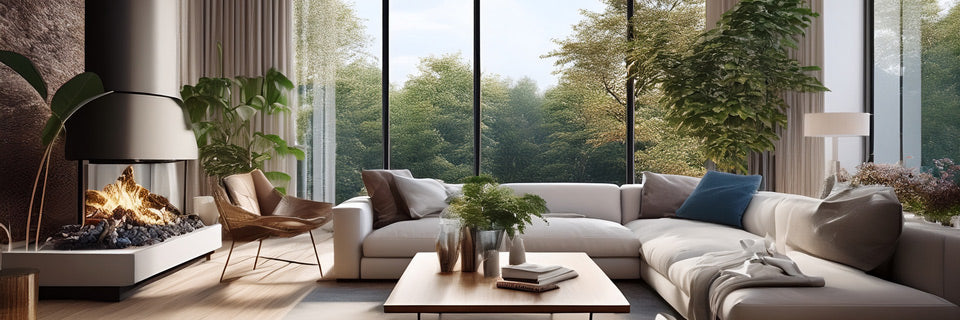
You invested in an air purifier hoping it would finally give you relief from constant sneezing, watery eyes, and that persistent stuffy feeling. Maybe it helped initially, but now you're wondering: "Why am I still having allergies with my air purifier?" If this sounds familiar, you're not alone.
The truth is, not all air purifiers are created equal, and what works for mild seasonal allergies may fall short when you're dealing with severe allergy symptoms. Understanding when your current system isn't cutting it can be the difference between ongoing frustration and finally breathing easy in your own home.
1. Your Symptoms Return Within Hours of Being Home
Here's a telling sign: you feel better when you're out and about, but within a few hours of being home, your allergies flare up again. This pattern suggests your air purifier isn't effectively removing the allergens circulating in your living space.
A properly functioning air purifier should create a noticeable difference in your home's air quality. If you're still reaching for antihistamines shortly after walking through your front door, your current unit may lack the power or filtration capacity needed for your specific allergy triggers.
Consider the size of your space versus your purifier's coverage area. Many people unknowingly purchase units that are too small for their rooms, leading to inadequate air circulation and cleaning.
2. You're Still Waking Up Congested Despite Running Your Purifier All Night
Your bedroom should be your sanctuary from allergens, especially since you spend 6-8 hours there every night. If you're consistently waking up with a stuffy nose, scratchy throat, or feeling like you didn't sleep well, your air purifier might not be working effectively for severe allergies.
Nighttime congestion often indicates that allergens like dust mites, pet dander, or even outdoor pollen that's tracked inside are still circulating in your bedroom air. A quality air purifier designed for allergy sufferers should significantly reduce these overnight symptoms.
Pay attention to whether your morning symptoms improve throughout the day when you're in other spaces. This comparison can help you identify if your bedroom air quality is the culprit.
3. Visible Dust Accumulates Quickly on Surfaces
Walk around your home and check your shelves, tables, and electronics. If you're seeing visible dust accumulation within just a few days of cleaning, it's a clear indicator that your air purifier isn't capturing airborne particles effectively.
An effective air purifier should noticeably reduce the amount of dust settling on your furniture and belongings. While some dust is inevitable, severe allergy sufferers typically need a more robust filtration system to keep particulate matter from constantly circulating and settling.
This is particularly important because dust often carries other allergens like dust mite waste products, pet dander, and pollen that has been tracked indoors.
4. Your Air Purifier Runs Constantly But Never Seems to "Catch Up"
Does your air purifier seem to run at high speed continuously, as if it's fighting a losing battle? Quality air purifiers should be able to clean a room's air relatively quickly and then maintain that cleanliness with periodic cycling.
If your unit is constantly working at maximum capacity, it likely means one of two things: either the filtration system isn't effective enough for your needs, or the unit is undersized for your space and allergen load.
This constant high-speed operation isn't just inefficient—it's often a sign that you need to upgrade to a more powerful system specifically designed for severe allergies.
5. You Experience Different Symptoms in Different Rooms
Here's an often-overlooked clue: if your allergy symptoms vary significantly depending on which room you're in, it suggests inconsistent air quality throughout your home. Maybe you feel fine in your living room but struggle in your bedroom, or vice versa.
This variation typically indicates that your current air purifier either doesn't have sufficient coverage area, or you need multiple units strategically placed throughout your home. Severe allergy sufferers often need comprehensive air cleaning that addresses their entire living space, not just one room.
The Science Behind Effective Allergy Relief
Recent research supports the importance of proper air filtration for allergy management. A 2024 systematic review published in Indoor Air examined multiple studies on air filter effectiveness for allergic rhinitis, while other research has shown that residential air filtration can be an important component of environmental control measures for patients with allergic respiratory disease.
The key lies in understanding that severe allergies require more than basic filtration. Studies show that HEPA-type filters can capture substantial amounts of airborne allergens, with true HEPA filters certified to collect 99.97 percent of particles 0.3 micrometers in diameter.
When It's Time to Upgrade Your Air Purifier for Allergies
If you're experiencing several of these signs consistently, it may be time to consider upgrading your air purifier. Look for units specifically designed for severe allergies that offer:
True HEPA filtration rather than "HEPA-type" filters, which provides superior particle capture for microscopic allergens like pollen, pet dander, and dust mite waste.
Appropriate room coverage that matches or exceeds your space size, with consideration for higher ceilings or open floor plans that may require more powerful circulation.
Multiple filtration stages that address different types of allergens, including pre-filters for larger particles and activated carbon for odors that can trigger sensitivities.
Higher Clean Air Delivery Rate (CADR) ratings that indicate the unit can process air more quickly and efficiently in your specific room size.
Moving Forward With Confidence
Recognizing that your air purifier isn't working for your allergies isn't a failure—it's valuable information that helps you make better choices for your health and comfort. Every home and every person's allergies are different, which means finding the right solution sometimes requires adjusting your approach.
The goal isn't just to have an air purifier running; it's to have one that actually improves your quality of life. When you find the right system for your needs, the difference should be clear: better sleep, fewer daily symptoms, and the confidence that your home is truly a refuge from your allergy triggers.
Take note of your current symptoms and patterns, then use this information to guide your next steps. Whether that means upgrading to a more powerful unit, adding additional purifiers to other rooms, or consulting with an allergy specialist about your overall management strategy, you're taking control of your indoor air quality and your health.
Your comfort and wellbeing matter, and you deserve an air purifier that actually works for your specific needs.

